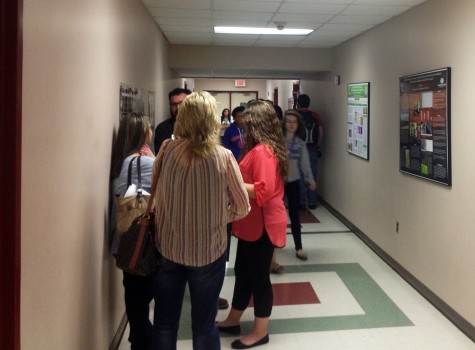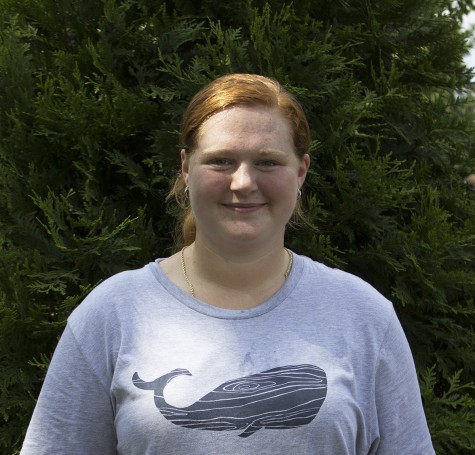21 MSMS Students Pursue Lab-Based Research at MSU
September 17, 2015

Students and tourists of MSMS crowd the upstairs Hooper hallway walking to classes or prepping for labs between research posters of former MSMS research students.
While their peers are conducting lab experiments and studying in Hooper on Tuesday and Thursday lab days, 21 MSMS students pursue more project-based research in the laboratories of Mississippi State University.
Only MSMS seniors are participating in research during the fall semester; juniors can apply for mentor placement during their second semester at MSMS. This semester students are researching topics ranging from linguistics to rocket science. At the end of their over-30 hour course, the student researchers present their findings at a school-wide symposium, scheduled for Tuesday, Dec. 8.
“I am supposed to be recreating a model of how organogels are formed,” said Rhet Hailey, who is researching computational chemical engineering. “Hopefully, I will be able to present my topic well.”
To some research students, the upcoming symposium is a daunting task; other high school lab-workers are more familiar with the process of developing and presenting a tested hypothesis. Four of the 21 current research students earned course credits last semester for their research work. Other MSMS students pursued research experience at universities and laboratories near their homes during summer break.
Elle McKenzie studied molecular biology in a biochemistry lab at the University of Southern Mississippi during the summer months. “I found it really fun,” said McKenzie. “I hadn’t taken biology in a while so it was nice to refresh and work in a lab.”
While current research students have only trekked to their MSU-based laboratories for three weeks, most are positive about their experiences so far. Under the guidance of a mentor or graduate student, they can both develop lab techniques, further knowledge in a specialized area of their interest and develop connections with experts in potential future professions
“It’s been fun,” said Hailey. “I’ve learned a lot about Macs and computers and all that jazz.”
Lauren Scott, a senior in her second year of research in forensic human anthropology, attends research for eight hours on Thursdays. This semester, however, Scott met her research mentor for the first time. “It was a little intimidating because I met him in a lab full of graduate students, and he was paying special attention to me and ignoring the graduate students,” said Scott. Through her continued pursuit of research experience in the same field, however, Scott has established connections and earned the opportunity to perform more intricate lab work.
“In the lab, I’ve been working with crania,” said Scott. “So I’ve been putting back together skulls which has been really fun.” She also works on computational analysis, studying the percentages of people who died of pellagra based on ethnicity and gender.
Through their specialized projects, research students have the chance to experience the daily requirements of a pure science field. Following their research handbook’s advice to “be willing to risk making mistakes,” the student lab-workers dive into the research, facing battle with “huge centrifuges” and failed trials. “I haven’t died yet,” said McKenzie, reiterating the optimistic persistence necessary in science.








